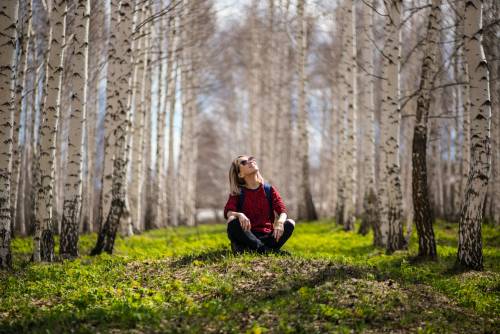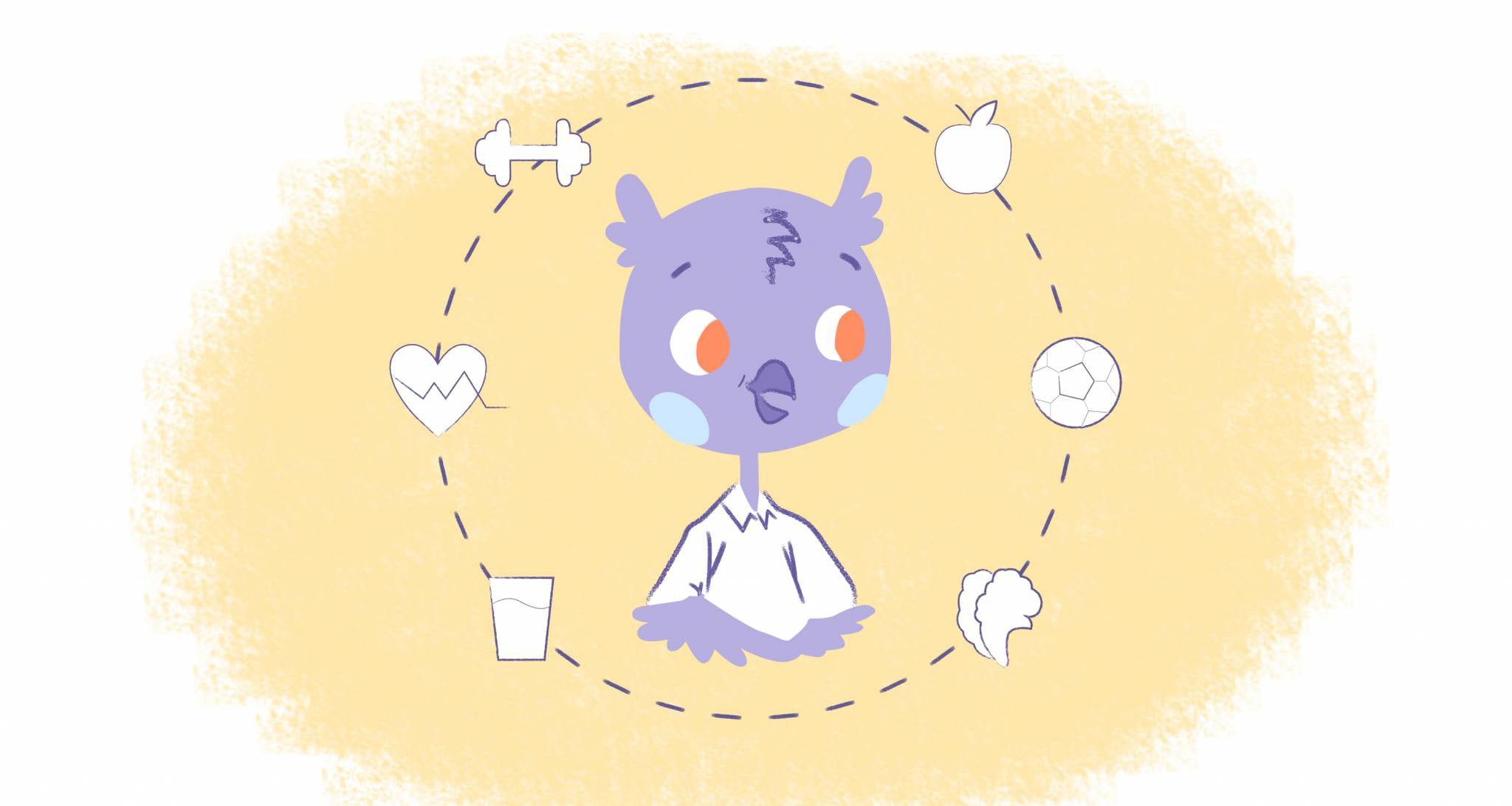

It’s easy to get sucked into a cycle of screens and schedules in today’s increasingly digital world. We wake up to phone notifications, sit behind computers all day, and stream Netflix after work. Not only are we always on, but because of this, we spend 90 percent of our time indoors!
Here’s the problem, though: Spending that much time inside isn’t good for your health, well-being, and productivity. Some pollutants are 20 to 50 times higher indoors than outdoors.
Apart from that, our minds and bodies thrive in nature. It is where we feel most free and joyful, and where opportunities seem limitless. As a result, we experience benefits like stress relief and a natural energy boost.
This guide aims to help you cut down on screen time. Rather than staying inside, go outside and smell the freshly mowed grass, feel the sun’s warmth on your skin, and breathe in the fresh air. Of course, that’s not always so easy. So, let’s consider why spending more time outdoors should be a priority and how to accomplish it.
Nature’s Therapy: The Science Behind Getting Outside
Nature has numerous benefits that can’t be attributed just to anecdotal evidence. Studies have proven the positive effects of the outdoors on our physical and mental health. Let’s take a look at what science has revealed:
The physical benefits of being outdoors.
Nature provides a vast playground for our bodies. Here’s how spending time outside can boost your physical health:
- Increased vitamin D production. Sunlight produces vitamin D, which is imperative for bone health, immune function, and mood regulation. As vitamin D deficiency is linked to a variety of health problems, spending time outside is a natural way to meet your daily needs.
- Enhanced cardiovascular health. Getting outdoors to walk, hike, or bike elevates your heart rate, strengthens your cardiovascular system, and improves your overall fitness.
- Reduced risk of chronic diseases. Spending time in nature can reduce the risk of chronic diseases such as heart disease, high blood pressure, diabetes, and even certain types of cancer.
- Improved sleep quality. During the day, exposure to natural light regulates your circadian rhythm, leading to deeper and more restful sleep at night.
- Stress reduction. According to a study in Frontiers in Psychology, spending just 20 minutes in nature can reduce stress hormone levels.
How nature affects your mental and emotional health.
Besides the physical benefits, spending time outside can significantly impact your mental and emotional well-being.
- Depression and anxiety are reduced. There is evidence that exposure to nature can effectively reduce anxiety and depression symptoms. Relaxation, mindfulness, and a sense of peace are all promoted by spending time in peaceful natural environments.
- Increased mood and focus. Spending time outdoors can significantly improve your mood. Sunshine increases the production of serotonin, a neurotransmitter connected to well-being and happiness. Additionally, research suggests that exposure to nature can improve cognitive function and focus.
- A greater sense of creativity and less fatigue. Studies suggest that people who spend time in green environments are less prone to mental fatigue and are more creative. In nature, people can temporarily escape the demands of everyday life, providing a mental break. By changing scenery and exposing the mind to natural stimuli, you can spark creativity, improve problem-solving abilities, and rejuvenate your mind.
- Improved self-esteem. Taking part in outdoor activities can increase confidence and self-esteem. For example, taking on a challenging hike or learning a new outdoor skill can foster a sense of accomplishment and personal growth.
Outdoor exploration has social benefits.
To strengthen social bonds and foster a sense of community, nature can be a catalyst:
- The sharing of experiences. A variety of outdoor activities provide opportunities for bonding with family and friends. We can share experiences, create lasting memories, and strengthen our social bonds by hiking, camping, or simply picnicking in the park.
- An increase in social interaction. Natural spaces such as parks, gardens, and other natural spaces often attract people from diverse backgrounds. In addition to providing opportunities for interaction with others, spending time outdoors fosters a sense of belonging and community.
- A commitment to environmental stewardship. A person’s interaction with nature may pique their interest in environmental conservation. People who spend time outdoors become more aware of the need to protect the natural world, leading them to participate in environmental causes or adopt more sustainable practices. It has been shown that spending time outdoors can increase helping behaviors.
Breaking Down Barriers: Overcoming Obstacles to Outdoor Time
While getting outside has many benefits, it can be difficult to do so more often than you would like. But perhaps the most challenging part is just getting started. In any case, here are some suggestions on how to overcome common roadblocks.
- “There isn’t enough time.” I know you have little time to get outside due to a busy schedule. However, there are ways to get a quick dose of nature. Consider standing outside with the sun on your face for five minutes, eating lunch outside, or scheduling a 25-minute walking meeting.
- “I don’t live near nature.” Despite this obstacle, you do not need a sprawling forest to enjoy the outdoors. Your balcony, local park, or community garden can serve as your gateway to nature.
- “The weather is bad.” The solution? You should invest in rain gear, such as rain suits and boots. For the colder seasons, make sure that you have warm clothing.
- “I don’t have anyone to go with.” Solo travel is perfectly fine! Take advantage of the outdoors by hiking, volunteering, or signing up for fitness classes held in nature.
Finding Your Outdoor Adventure: Activities for Every Interest
One of the best things about the outdoors is its versatility. There’s something for everyone, whether you’re an adrenaline junkie or a serenity seeker.
- Active enthusiasts. Whether hiking, biking, kayaking, rock climbing, or stand-up paddleboarding, the possibilities for adventure are endless.
- Nature lovers. Experience nature’s sights and sounds by birdwatching, stargazing, or walking.
- Leisure seekers. Sip a relaxing coffee on your patio, picnic at the park, or read a book under a tree.
- Social butterflies. Take part in a local sports team, organize a backyard game night, or have a potluck in the park.
- Creative soul. Whether you’re a photographer, a painter, or a writer, you can capture the beauty of nature.
Making it a Habit: Tips for Long-Term Outdoor Integration
- Start small, but be consistent. Every day, spend short periods outdoors and gradually increase the duration.
- Find an accountability buddy. Motivate each other with a friend or family member.
- Combine outdoor activities with hobbies you enjoy. Is photography your passion? You can combine it with a nature walk.
- Take your errands on an adventure. Is it possible to turn a mundane errand into an outdoor adventure? Enjoy your drink on a park bench after you walk to the nearest cafe.
- Repurpose your commute. If public transportation is available, get off a stop early and walk the remainder of the distance. Or, consider parking further away from your destination and taking a short walk instead.
- Combine activities. Take your yoga practice outdoors, listen to audiobooks, or return phone calls while walking.
- Connect with nature-focused communities. Follow nature enthusiasts online, join a hiking club, or volunteer for a conservation project.
- Dine al fresco. If you have a backyard or a park nearby, pack a picnic lunch and enjoy your meal outside.
- Make it convenient. Ensure your backpack has essentials like sunscreen, bug spray, and rain gear.
- Take advantage of all the seasons. Despite the weather, don’t let it stop you from going outside. Grab a book and huddle under a shady tree during the springtime, plan a pool party in the summer, pick pumpkins in the fall, or bundle up for a brisk winter walk. Remember, nature offers unique experiences throughout the year.
- Track your progress. Take advantage of a fitness app or journal to track your outdoor activity and celebrate your successes.
- Make it a habit. Schedule outdoor time in your calendar like any other appointment. Be consistent to make it a regular part of your life.
Beyond the Basics: Unconventional Ways to Embrace the Outdoors
Are you feeling adventurous? The following are some unique ways to enhance your outdoor experience:
- Stargazing. Discover the wonders of the universe from a spot with minimal light pollution. Download a stargazing app for help identifying constellations.
- Urban exploration. You might be surprised to discover how many hidden green spaces your city has. Urban landscapes are dotted with pocket parks, community gardens, and rooftop terraces that offer unexpected pockets of nature.
- Volunteer in your community. Get involved in your neighborhood by maintaining parks or planting trees. As a result, you can give back while enjoying the outdoors.
- Take up a new hobby. Gardening, birdwatching, and photography are excellent ways to connect with nature and learn new skills.
Embrace the Power of Nature: A Final Note
It is undeniable that spending time outdoors has many benefits. Whether it’s boosting your mood or improving your physical health, nature can enhance your well-being. As such, don’t be afraid to start small, find something you enjoy doing, and make it a habit.
The great outdoors awaits you. So, step outside, breathe deeply, and reconnect with nature.
FAQs
Why should I spend more time in nature?
The following are some of the benefits of spending time outdoors:
- In addition to reducing stress, it improves your mood as well.
- It boosts your immune system.
- Increases creativity and focus.
- Enhances the quality of sleep.
- Provides opportunities for physical activity and exercise.
I don’t have much time. How can I fit nature into my day?
The benefits of nature can be felt even in small doses. Check out these ideas:
- During your lunch break, go for a walk.
- Take your breakfast outside on your porch or balcony.
- Get out and plant some herbs, even if it is just in a small container.
- Listen to the birds sing while you sit by a window.
I’m not outdoorsy. What are some activities I can do?
Regardless of your interests, you can connect with nature in many ways. A few ideas are listed below:
- Take a walk in a park or along a nature trail.
- Enjoy a picnic in the open air.
- Under a tree, read a book in a hammock.
- Watch the stars at night.
- Become a volunteer at a local park or environmental organization.
What if the weather is bad?
Don’t let it stop you, no matter how cold or rainy it may be. You can still enjoy the fresh air if you dress appropriately. Alternatively, you could:
- Explore an indoor arboretum or botanical garden.
- Go swimming in an indoor pool.
- Watch nature documentaries.
I live in a city. Are there still ways for me to connect with nature?
Absolutely! Here are some suggestions:
- Find a rooftop park or garden.
- Take a tour of a local urban farm.
- Enjoy a stroll along a river or canal.
- You can watch people in a park and observe the natural world.
- Have a meal at a restaurant that offers outdoor seating.
- Take advantage of PARK(ing) Day. An annual global event, it focuses on transforming urban spaces into something more community-centric than car-centric.
Image Credit: Baurzhan Kadylzhanov; Pexels











John Hall
John Hall is the co-founder of Calendar a scheduling and time management app. He’s also a keynote speaker that you can book at http://www.johnhallspeaking.com.